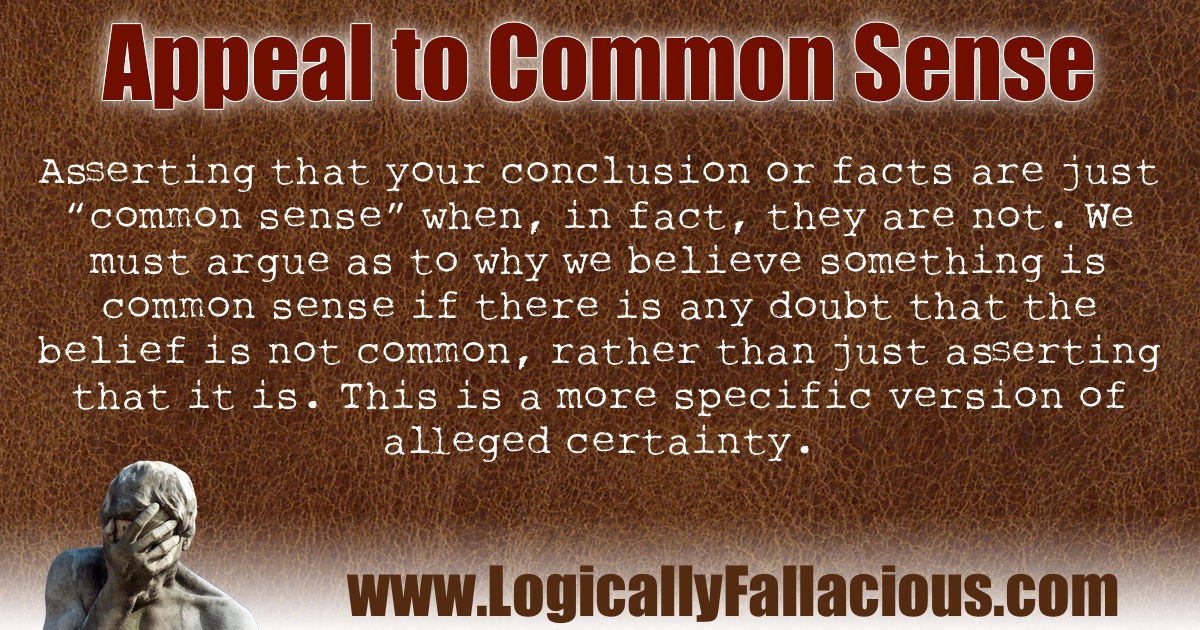Description: Asserting that your conclusion or facts are just “common sense” when, in fact, they are not. We must argue as to why we believe something is common sense if there is any doubt that the belief is not common, rather than just asserting that it is. This is a more specific version of alleged certainty.
Logical Form:
It's common sense that X is true.
Therefore, X is true.
Example #1:
It's common sense that if you smack your children, they will stop the bad behavior. So don't tell me not to hit my kids.
Explanation: What is often accepted as "common sense" is factually incorrect or otherwise problematic. While hitting your kids may stop their current bad behavior, the long-term psychological and behavioral negative effects can far outweigh the temporary benefits. Logically speaking, the example simply appeals to "common sense" rather than makes an attempt at a strong argument.
Example #2:
Don: If you drink alcohol, it will kill any virus you might have.
Tony: What evidence do you have to support that?
Don: I don’t need evidence. It is common sense.
Explanation: Since we use alcohol to clean viruses from our skin, it might be “common sense” that it would clean our insides too. But this is not the case. First, the alcohol needs to be high concentration, like 60% or more to be effective. Second, it does nothing to kill a virus in your body. Third, Don does need evidence if he is trying to convince Tony he is right, and he should demand evidence for himself before engaging in a risky behavior because of what he believes is “common sense.”
Example #3:
FlatSam: Common sense tells us that if the earth were a sphere, people on the bottom would fall off.
ReasonEric: I don’t think you get to reference something you clearly don’t have.
Explanation: FlatSam is attempting to justify his implied argument (the earth is flat) by appealing to “common sense.” He appears to be offering a reason (i.e., people on the bottom would fall off), but that reason is itself a claim “supported” by the appeal to common sense.
Exception: What is "common sense" to one might not be to another. It is possible one might not accept something that is "common sense," so it could be argued that the error in reasoning falls on the person rejecting the assertion of common sense.
Tip: It's all about good communication. Keep your assumptions to a minimum when attempting to make a persuasive argument.

References:
Facione, P. A., & Facione, N. C. (2007). Thinking and reasoning in human decision making: the method of argument and heuristic analysis. California Academic Press.
Questions about this fallacy? Ask our community!